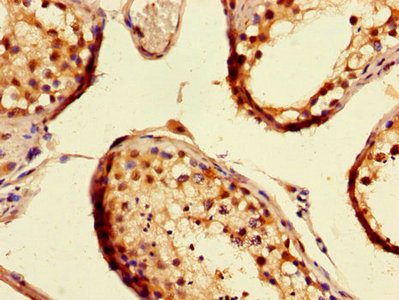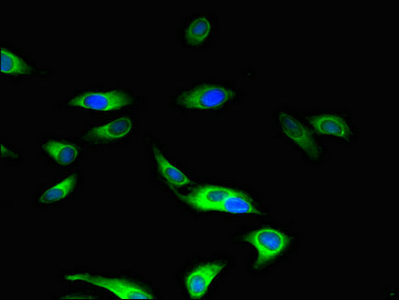Full Product Name
Rabbit anti-Homo sapiens (Human) MAP3K5 Polyclonal antibody
Alternative Names
Apoptosis signal regulating kinase 1 antibody; Apoptosis signal-regulating kinase 1 antibody; ASK 1 antibody; ASK-1 antibody; ASK1 antibody; M3K5 antibody; M3K5_HUMAN antibody; MAP/ERK kinase kinase 5 antibody; MAP3K5 antibody; MAPK/ERK kinase kinase 5 antibody; MAPKKK5 antibody; MEK kinase 5 antibody; MEKK 5 antibody; MEKK5 antibody; Mitogen activated protein kinase kinase kinase 5 antibody; Mitogen-activated protein kinase kinase kinase 5 antibody
Immunogen
Recombinant Human Mitogen-activated protein kinase kinase kinase 5 protein (363-431AA)
Immunogen Species
Homo sapiens (Human)
Conjugate
Non-conjugated
The MAP3K5 Antibody (Product code: CSB-PA013427LA01HU) is Non-conjugated. For MAP3K5 Antibody with conjugates, please check the following table.
Available Conjugates
| Conjugate |
Product Code |
Product Name |
Application |
| HRP |
CSB-PA013427LB01HU |
MAP3K5 Antibody, HRP conjugated |
ELISA |
| FITC |
CSB-PA013427LC01HU |
MAP3K5 Antibody, FITC conjugated |
|
| Biotin |
CSB-PA013427LD01HU |
MAP3K5 Antibody, Biotin conjugated |
ELISA |
Purification Method
>95%, Protein G purified
Concentration
It differs from different batches. Please contact us to confirm it.
Buffer
Preservative: 0.03% Proclin 300
Constituents: 50% Glycerol, 0.01M PBS, PH 7.4
Tested Applications
ELISA, IHC, IF
Recommended Dilution
| Application |
Recommended Dilution |
| IHC |
1:20-1:200 |
| IF |
1:50-1:200 |
Storage
Upon receipt, store at -20°C or -80°C. Avoid repeated freeze.
Lead Time
Basically, we can dispatch the products out in 1-3 working days after receiving your orders. Delivery time maybe differs from different purchasing way or location, please kindly consult your local distributors for specific delivery time.
Usage
For Research Use Only. Not for use in diagnostic or therapeutic procedures.






